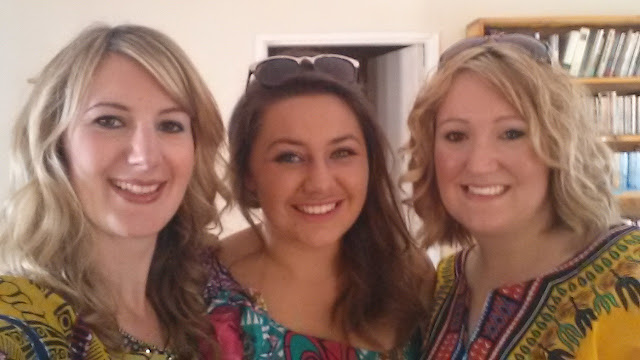Zanzibar is a very beautiful island off the coast of Tanzania. Lots of expats and missionaries who I've met in Zambia recommended going there, so it was the location my sisters and I chose for our summer holiday destination.
My sister very generously contributed to my share of the accommodation as an early birthday present for me. It meant there was no need for camping; in fact we stayed in a rather luxurious place (my sister Rach is a bit fussy, or has ‘high standards’ as she puts it!). ‘Next Paradise Boutique Resort ’, where we stayed, is very aptly named. There are only 20 rooms in a large, beautiful space. We spent 12 peaceful, fun and relaxing days there. I would thoroughly recommend it!
Most of our time was spent at the beach, swimming in the pool, reading in the sun, snorkelling or playing Bananagrams (a game a bit like Scrabble). We had a guided tour around Stone Town, the capital of Zanzibar, where we learned more about the history of the slave trade and bartered in some of the local markets. We also walked around the local area and learned some Swahili from the waiters and resident Masaai warriors (the security guards at our resort).
We Cross sisters love travelling and holidaying in new places. In the last few years we have enjoyed visiting St Lucia, Sri Lanka and Cuba together. Organising this year was slightly different with me living in Zambia on a tight budget, but we decided to book something so that I would get to see Rach and Rhi during my year away. Since Rhi is due to move to the States in the next few months, I don't know when I will next see her. So it was great fun for the three of us to be reunited again.
In some ways for me it felt different travelling to this luxurious destination. Rather than working hard and saving up all year in the UK, I've been surrounded by poverty in Zambia. I interact with people struggling to make ends meet on a daily basis. I could ask myself how I can justify spending the money (either mine or my sister’s!) to go on such a nice holiday when I know people who don’t always have enough to eat. It can be hard to know how to hold these things in tension.
One of the things that helps me is realising that everything is relative. Some people who live in Kaniki have a family, a job, food, friends, a church community and a happy life. I'm not sure that they need all the 'luxuries' we are used to at home, such as Wi-Fi and dishwashers! At the other end of the scale, there are some people who live in huge mansions and only holiday on private islands. And in the same way, I don't need those luxuries in order to enjoy my life. These things are all relative depending on the situation you’re in.
I guess we can get used to a certain standard of living (like grubby kitchens with endless piles of washing up in student digs!) but it doesn't mean it is necessarily what everyone else wants or needs. Not everyone I know at home would relish the thought of living here among the dirt and insects, enduring constant power cuts (more on this topic in another blog post…). But I think that’s ok; we’re all different.
This doesn't provide an adequate answer for how to fully live with the tension between poverty and wealth. But I'm learning that there are many complex issues involved in changing communities. One person denying themselves treats or luxuries does not necessarily go very far in solving anything, although on the other hand, it is good to be generous. I am reminded of the serenity prayer: ‘God grant me the serenity to accept the things I cannot change, courage to change the things I can and the wisdom to know the difference’.
Funnily enough, there is also a type of materialism that exists in Africa. I’ve noticed some people who have TV sets in their houses even though they don’t have a job, just because they want to be seen to have a television. Someone I was talking to here recently didn’t understand why I would prefer to walk somewhere instead of drive, because travelling by car is seen as superior to walking! Although we’re all different, there also seem to also be some commonalties, even across cultures.


















